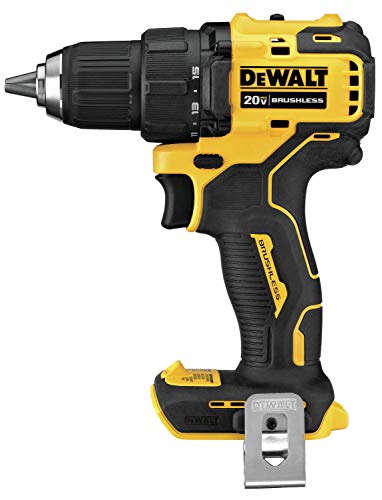Homefixerhub.com is supported by its readers. When you purchase through links on our site, we may earn an affiliate commission. Also, as an Amazon affiliate, we earn from qualifying purchases.
If you’re a Ryobi tool owner, you may be wondering if you can use any battery with your tools. The short answer is no, Ryobi tools are designed to work with specific types of batteries. However, Ryobi has a wide range of batteries available, and some are compatible with multiple tools. You can find third-party batteries at some stores, but keep in mind that they may not be of the same quality as the original batteries.
One of the standout features of Ryobi’s products is their interchangeable battery system, which allows users to use the same battery with multiple Ryobi tools.
This means that if you own a Ryobi drill that comes with a battery, you can use that same battery with other Ryobi tools, such as a saw or a weed trimmer. This is possible because all of Ryobi’s products are designed to be compatible with the same battery platform.
In this article, we’ll dive deeper into the world of Ryobi batteries and discuss which ones you can use with your tools!
Contents
Understanding Ryobi Battery Compatibility
To understand which batteries are compatible with your Ryobi tools, you need to know the types of batteries that Ryobi makes. Ryobi currently produces four types of batteries: Lithium-ion (Li-ion), NiCad, NiMH, and HP (High-Performance).
Li-ion batteries are the most common type of battery used with Ryobi tools. They are lightweight, long-lasting, and rechargeable. They also have a low self-discharge rate, meaning they can hold their charge for a long time when not in use.
NiCad batteries are older technology, but some older Ryobi tools still use them. They are heavier and have a shorter lifespan than Li-ion batteries. They also have a higher self-discharge rate, which means they lose their charge faster when not in use.
NiMH batteries are similar to NiCad batteries but have a longer lifespan and a lower self-discharge rate. They are also compatible with some older Ryobi tools.
HP (High-Performance) batteries are the newest addition to Ryobi’s lineup. They are designed to provide longer runtimes and faster charging times than standard Li-ion batteries. They are also compatible with all Ryobi 18V ONE+ tools.
Which Batteries Can You Use with Your Ryobi Tools?
Now that you know the types of batteries Ryobi makes, let’s discuss which ones you can use with your tools.
Li-ion Batteries
Li-ion batteries are compatible with all Ryobi 18V ONE+ tools. They are available in several capacities, ranging from 1.3Ah to 9.0Ah. The larger the capacity, the longer the runtime.
NiCad and NiMH Batteries
NiCad and NiMH batteries are not compatible with all Ryobi tools. They are only compatible with older tools that were designed to use them. If you have an older Ryobi tool that uses one of these battery types, you can still find replacement batteries online or at your local home improvement store.
HP (High-Performance) Batteries
HP batteries are compatible with all Ryobi 18V ONE+ tools. They are available in two capacities: 3.0Ah and 9.0Ah. The 3.0Ah battery provides up to 2x more runtime than a standard Ryobi Li-ion battery, while the 9.0Ah battery provides up to 4x more runtime.
- 6 tools included: versatile and comprehensive set for various projects
- Cordless design: provides convenience and mobility during use
- 18V battery: ensures long-lasting power and performance
- Compact and lightweight: easy to handle and store
- LED lights: allows for improved visibility in low light conditions
- Ergonomic grip: provides comfort and reduces fatigue during use
- Extremely good value!
Understanding Battery Voltage and Ah
When shopping for a Ryobi battery, you may notice that they come in different voltages and Ah (ampere-hour) ratings. Voltage refers to the electrical potential of the battery, while Ah refers to the amount of energy the battery can store.
Ryobi batteries are available in two voltages: 18V and 40V. 18V batteries are used with most Ryobi tools, while 40V batteries are used with Ryobi’s line of outdoor power equipment.
Ah ratings can range from 1.3Ah to 9.0Ah, with larger Ah ratings providing longer runtime. However, larger Ah batteries also tend to be heavier and more expensive.

- 18-volt lithium-ion battery provides long-lasting power
- Brushless motor delivers efficient and durable performance
- Compact size for easy maneuverability in tight spaces
- 1/2 inch metal chuck for strong bit grip
- Adjustable clutch with 18 settings for precise drilling and driving
- LED light illuminates the work area for improved visibility

- Compact and lightweight design for easy handling and maneuverability
- Powerful brushless motor delivers high performance and long runtime
- A 1/2-inch ratcheting chuck provides a secure grip on bits for improved accuracy
- Ergonomic handle with rubber over-mold reduces user fatigue and enhances comfort
- LED work light illuminates dark workspaces for increased visibility and precision.
- Cheapest of the bunch, and my personal favorite!

- Compact and ergonomic design for comfortable handling
- Variable 2-speed design (0-600 & 0-1,900 RPM) for a wide range of drilling and driving applications
- 4-pole motor delivers up to 480 in. lbs. of maximum torque
- All-metal gear construction for durability and long tool life
- Dual LED lights illuminate the work area for improved visibility
- Compatible with Makita 18V Lithium-Ion batteries with a fast charging time
Can a Ryobi tool use a DeWalt battery?
You can, if you use an adapter. Third-party manufacturers offer adapters that allow you to use DeWalt batteries with Ryobi tools. However, keep in mind that these adapters may not be as reliable or of the same quality as the original batteries. In this link, for example, you can buy an adapter for your DeWalt batteries to be used with Ryobi tools.
Do Ryobi tools take Milwaukee batteries?
The same goes for Milwaukee, too. There are adapters available that will allow you to use Milwaukee batteries with your Ryobi tools. Again, the adapters may not be as reliable or of the same quality as the original batteries.
I would always recommend using original batteries unless you have no other choice but to use an adapter. If that is the case, make sure to buy one from a trusted manufacturer and always read customer reviews before making a purchase. This way, you are sure that you’re getting the best product possible.
Tips for Maximizing Your Ryobi Battery Life
Now that you know which batteries you can use with your Ryobi tools, here are some tips for maximizing their lifespan:
- Store batteries in a cool and dry place: Batteries should be stored in a cool and dry place to prevent them from overheating or getting wet. Extreme temperatures can also affect the performance of the batteries.
- Charge batteries fully before use: Before using a new battery, make sure to charge it fully. This will ensure that you get the maximum runtime out of the battery.
- Use the right charger: Only use Ryobi chargers with Ryobi batteries. Using a charger from a different brand or type of battery can damage the battery or charger and potentially be dangerous.
- Don’t overcharge or over-discharge: Overcharging or over-discharging a battery can cause damage to the cells and reduce the overall lifespan of the battery. Make sure to follow the manufacturer’s recommendations for charging and discharging the battery.
- Use the right battery for the job: Using a battery with the wrong voltage or Ah rating can cause your tool to underperform or even be damaged. Make sure to use the right battery for the job and follow the manufacturer’s recommendations.
Conclusion
In conclusion, Ryobi tools are designed to work with specific types of batteries. Li-ion batteries are the most common and are compatible with all Ryobi 18V ONE+ tools. NiCad and NiMH batteries are only compatible with older Ryobi tools that were designed to use them. HP (High-Performance) batteries are the newest addition to Ryobi’s lineup and are compatible with all Ryobi 18V ONE+ tools.
When shopping for a Ryobi battery, make sure to consider the voltage and Ah rating to get the right battery for your tool and job. Following the tips for maximizing your battery life will help ensure that your batteries last as long as possible.
Remember to only use Ryobi batteries with Ryobi tools and chargers, and to always follow the manufacturer’s recommendations for charging and discharging the battery. With the right battery and care, your Ryobi tools will perform their best and last for years to come.
Amazon and the Amazon logo are trademarks of Amazon.com, Inc, or its affiliates.




